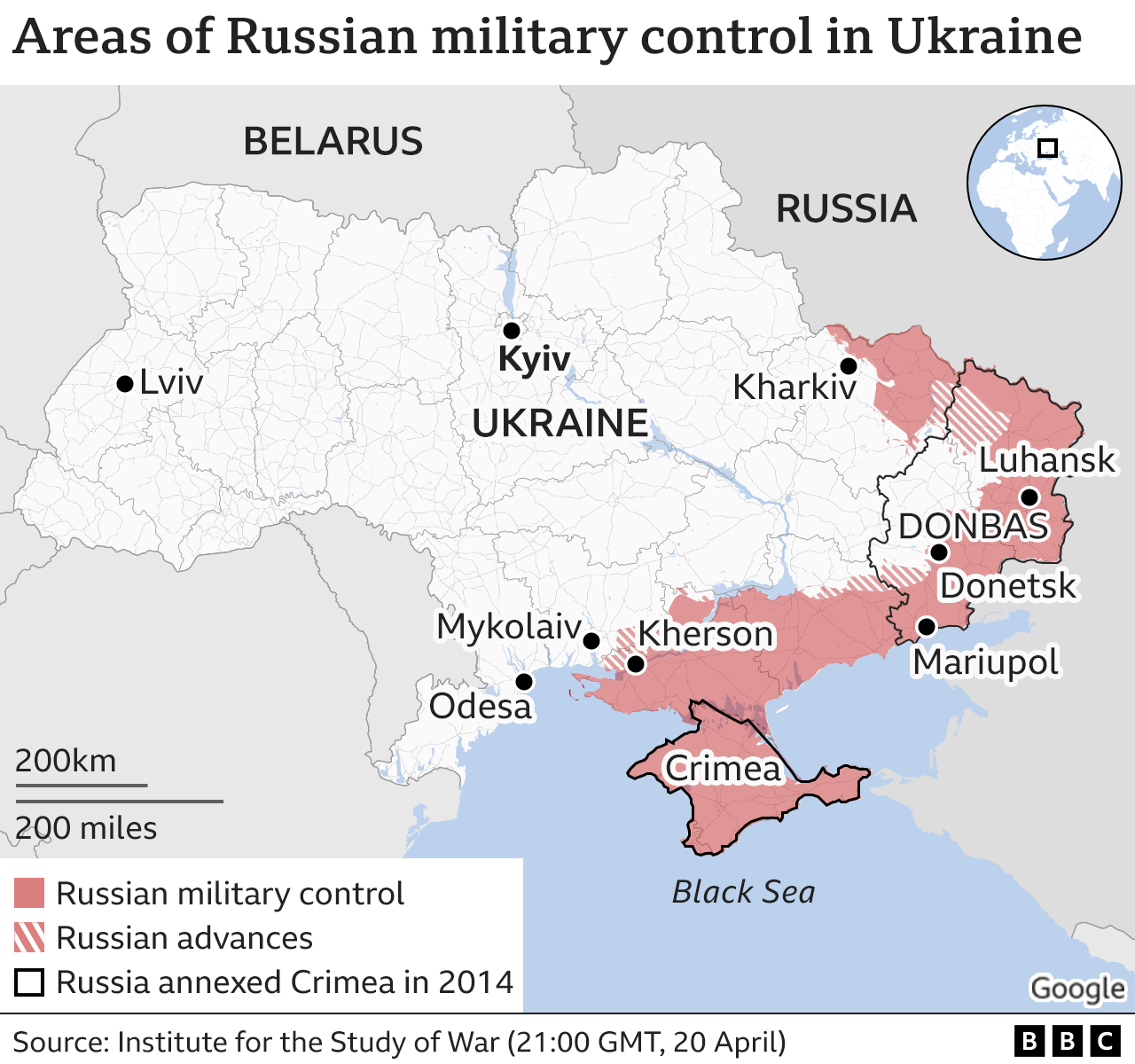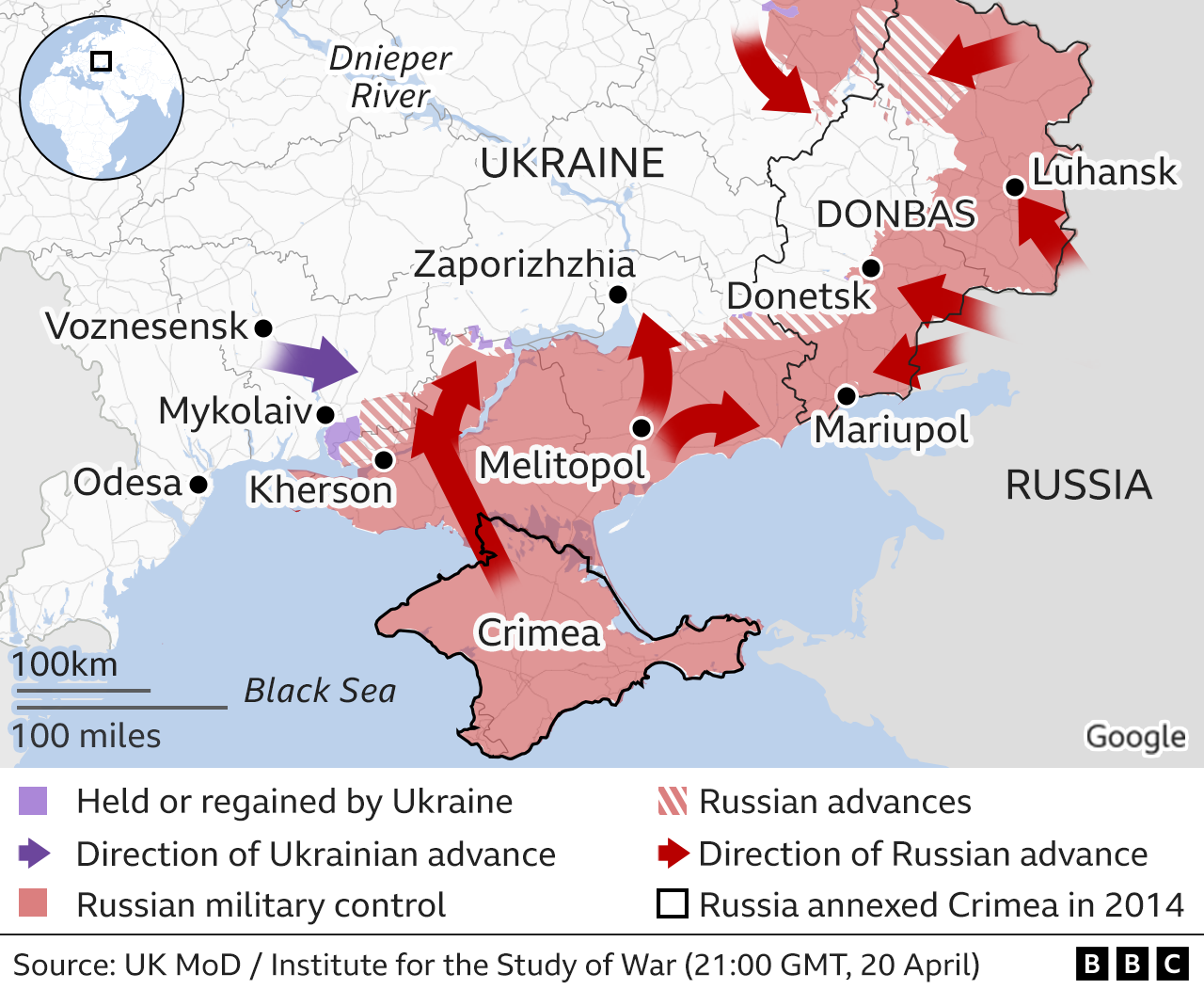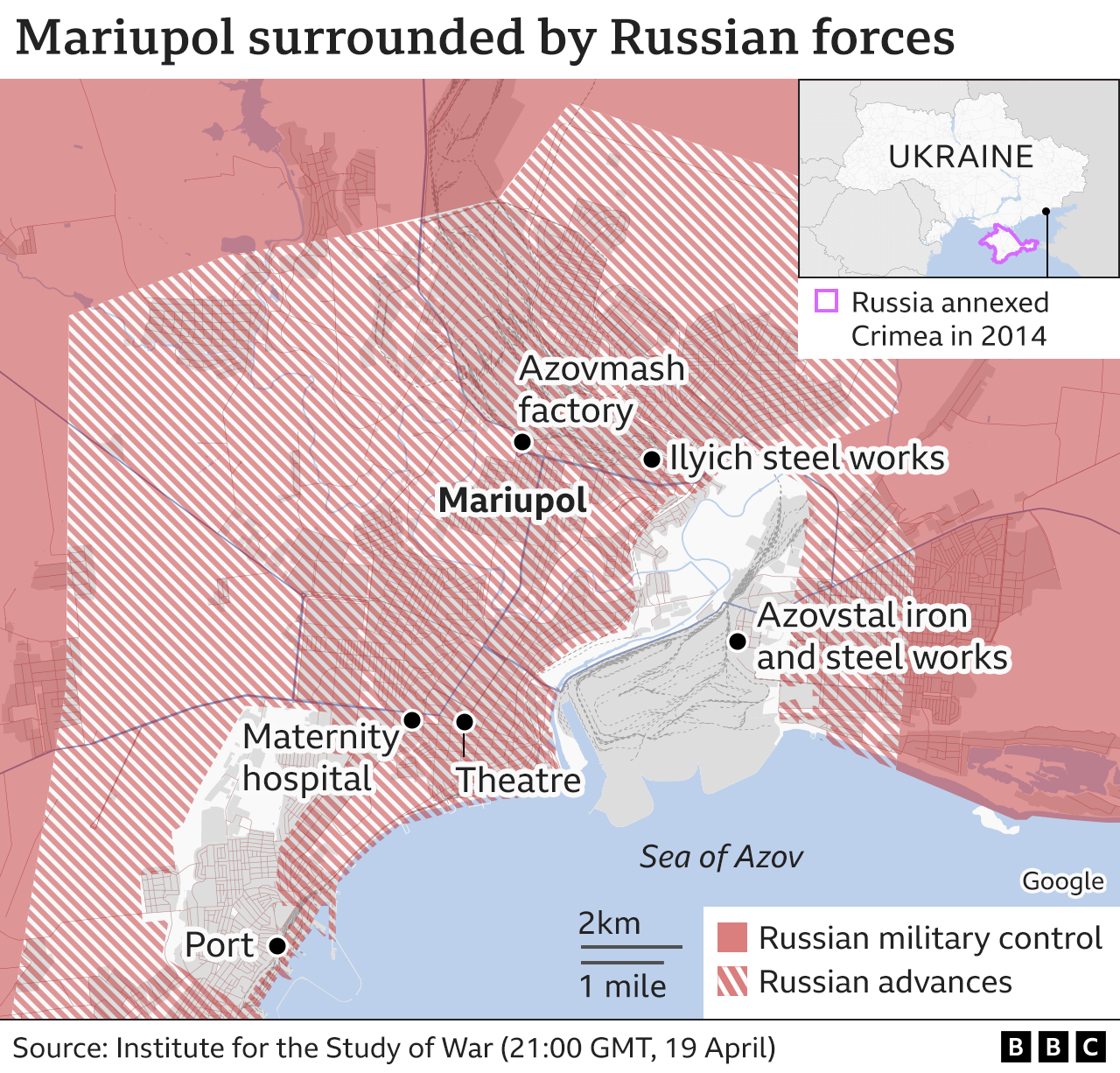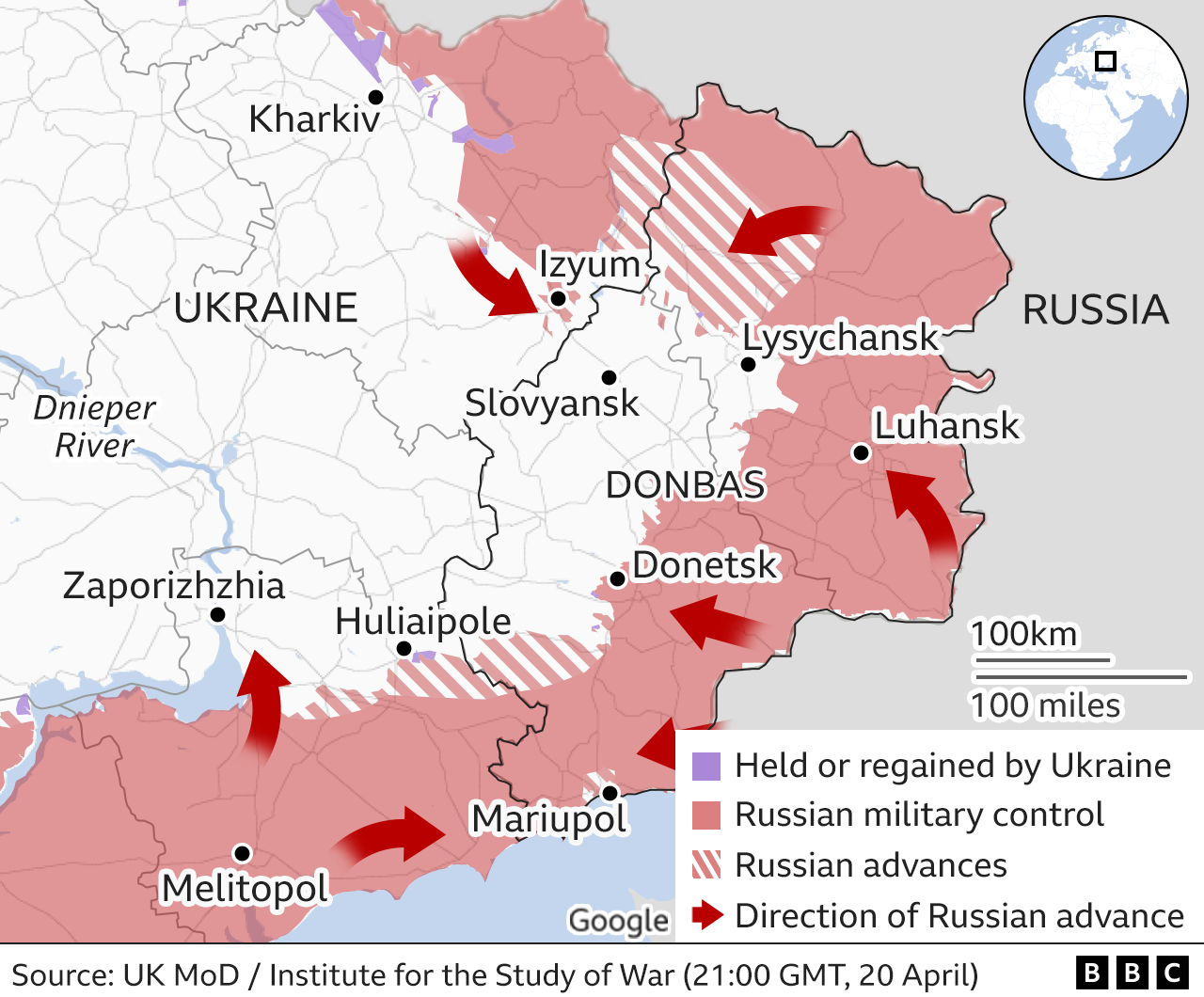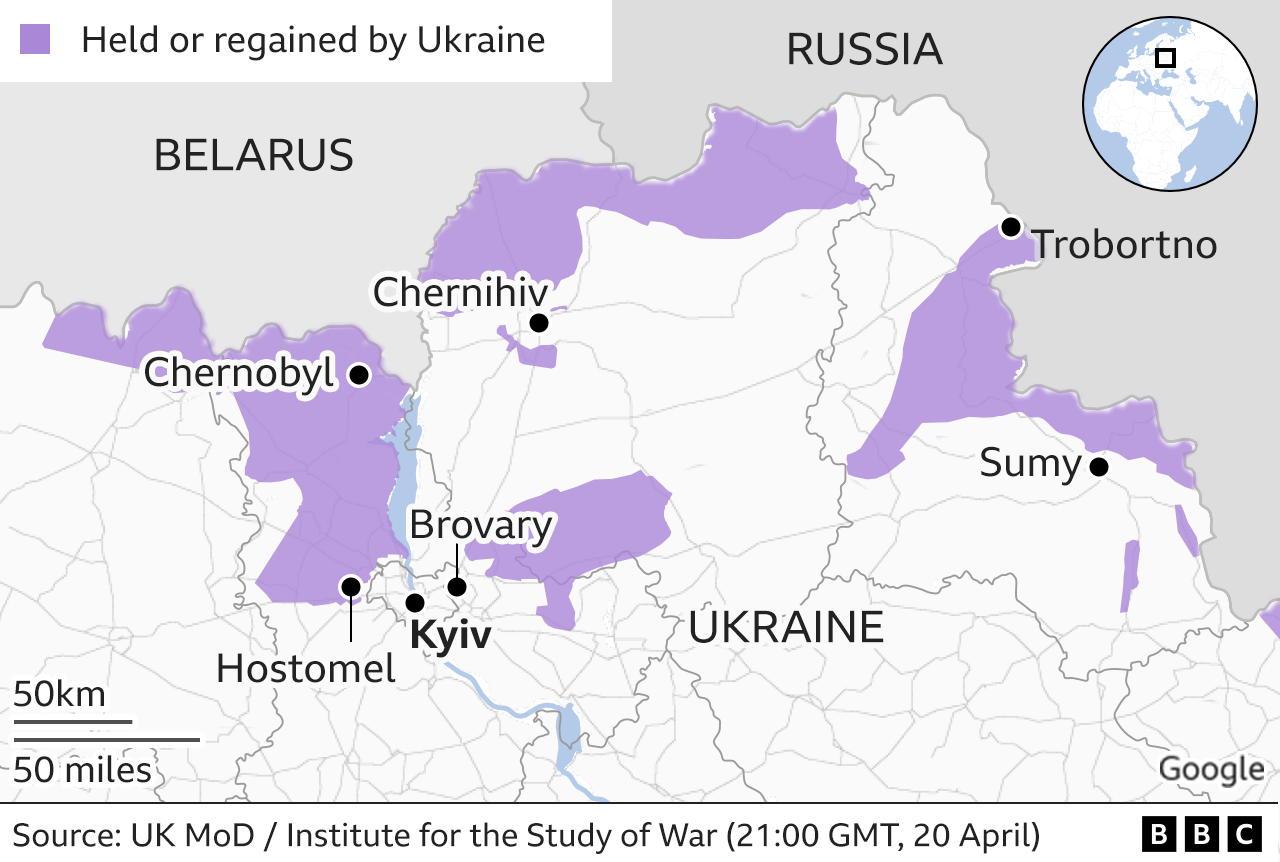BBC News 21 April 2022 - by the Visual Journalism Team
Russia declares victory in Mariupol in the south, as fighting in Ukraine's eastern Donbas region intensifies.
Here are the latest developments:
Russia invaded Ukraine on 24 February, but its forces have now fully withdrawn from around the capital Kyiv and northern Ukraine to Belarus and Russia.
A large-scale Russian offensive in eastern Ukraine has begun after Russia refocused its efforts there, following its withdrawal from the north of Ukraine.
Russia claims a victory in the south
Russian forces initially made rapid gains in the south, with their main objective being the creation of a land corridor between Crimea, which it annexed in 2014, and areas held by Russian-backed separatists in Donetsk and Luhansk.
Standing in the way of that objective has been the port city of Mariupol, which has been encircled by Russian forces since the start of March.
On Thursday, Russian President Vladimir Putin appeared on television with his defence minister to declared victory in Mariupol, despite over 1,000 Ukrainian fighters remaining at the Azovstal metal works.
President Putin cancelled an expected assault on the Azovstal complex, instead ordering his forces to "block off this industrial area so that not even a fly can escape" after the final Ukrainian troops refused to surrender.
Russia has been accused of war crimes for its intense shelling of the city, with the local mayor saying more than 20,000 civilians have been killed.
To the west, Russia had been attempting to push towards Odesa, with the aim of cutting off Ukraine's access to the Black Sea, but their advances stalled at Mykolaiv.
The ISW believes that Ukrainian troops in the area may attempt to retake the city of Kherson in the coming weeks.
War in Ukraine: More coverage
- EXPLAINED: Why Russia wants eastern Donbas
- IN MAPS: Tracking the invasion
- UKRAINE: Where have millions of refugees gone?
- READ MORE: Full coverage of the crisis
Russia targets full control in the east
Russian officials have said that the focus of their forces is now the "complete liberation" of the Donbas, which broadly refers to Ukraine's eastern regions of Donetsk and Luhansk, where Russian-backed separatists held significant territory before the invasion.
Russia has substantially increased its troop numbers in the Donbas region in recent weeks, with satellite imagery showing a build-up of forces on Ukraine's border and convoys of vehicles travelling towards the frontline.
Both sides are locked in combat along the 300-mile front. The Ukrainians have repelled "numerous" attempted advances, according to the UK Ministry of Defence (MoD) but the Institute for the Study of War (ISW) says Russian forces have taken parts of Rubizhne and Popasna, two cities to the east of Izyum.
Ukraine claims to have retaken the town of Maryinka near Donetsk.
The ISW says Russia may be attempting to encircle Ukrainian forces from Izyum to Donetsk, but the "haste" with which the offensive was launched could jeopardise its success.
North retaken after Russian retreat
Russia abandoned a stalled push towards Kyiv, which had begun in the first days of its invasion, and withdrew its forces from the north of the country.
Successful counterattacks by Ukrainian forces helped retake areas around Kyiv and, as the Russians withdrew, the Ukrainians were able to advance all the way to their northern borders with Belarus and western Russia.
The Russian retreat has allowed a clearer picture to emerge of the huge amount of damage and destruction to lives and towns and villages seized during their push towards the capital, with allegations of war crimes committed by Russian troops.
By David Brown, Bella Hurrell, Dominic Bailey, Mike Hills, Lucy Rodgers, Paul Sargeant, Mark Bryson, Zoe Bartholomew, Sean Willmott, Sana Dionysiou, Joy Roxas, Gerry Fletcher, Jana Tauschinsk, Debie Loizou and Prina Shah.
About these maps
To indicate which parts of Ukraine are under control by Russian troops we are using daily assessments published by the Institute for the Study of War with the American Enterprise Institute's Critical Threats Project.
To show key areas where advances are taking place we are also using daily updates from the UK Ministry of Defence and BBC research.
The situation in Ukraine is fast moving and it is likely there will be times when there have been changes not reflected in the maps.

